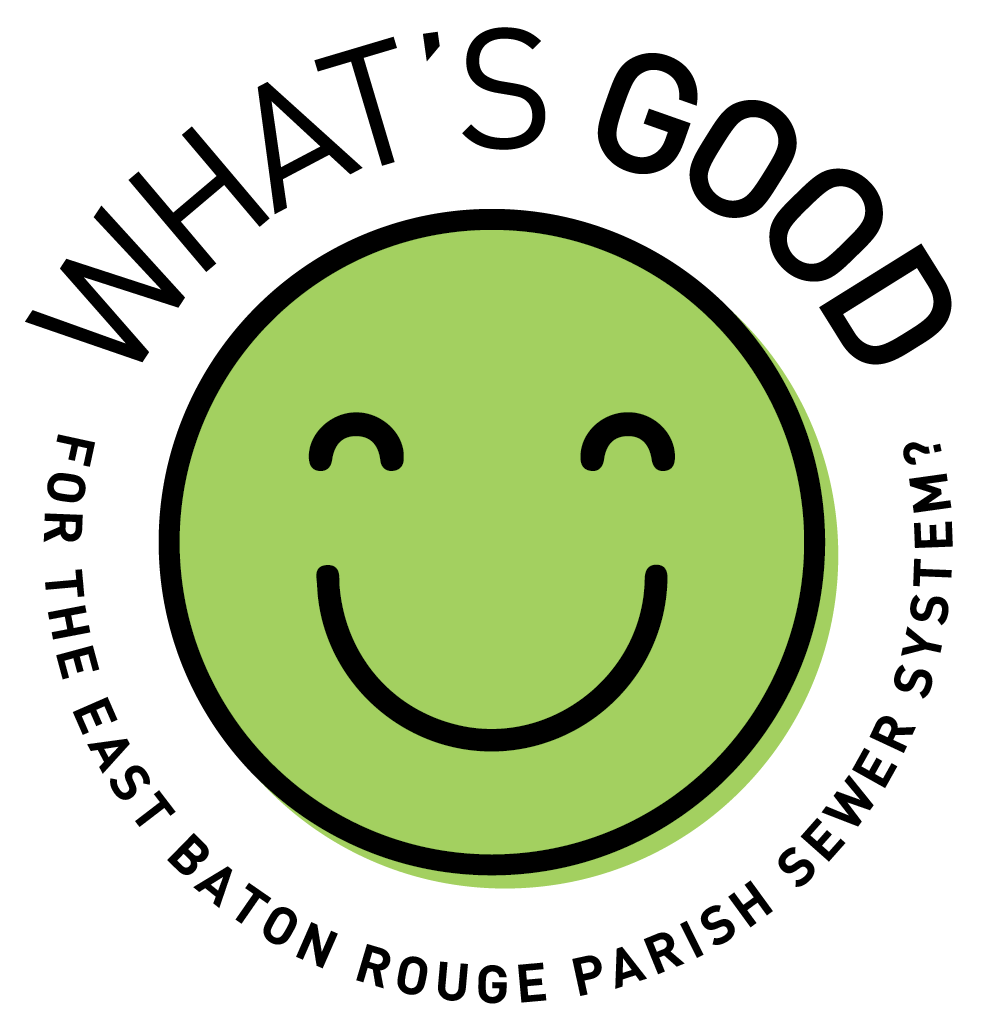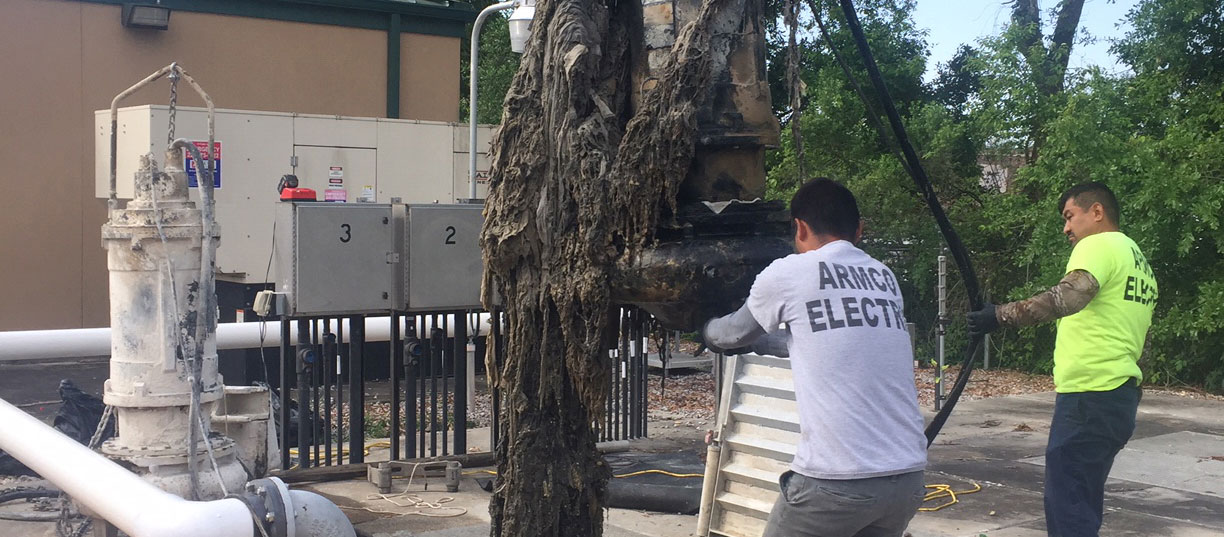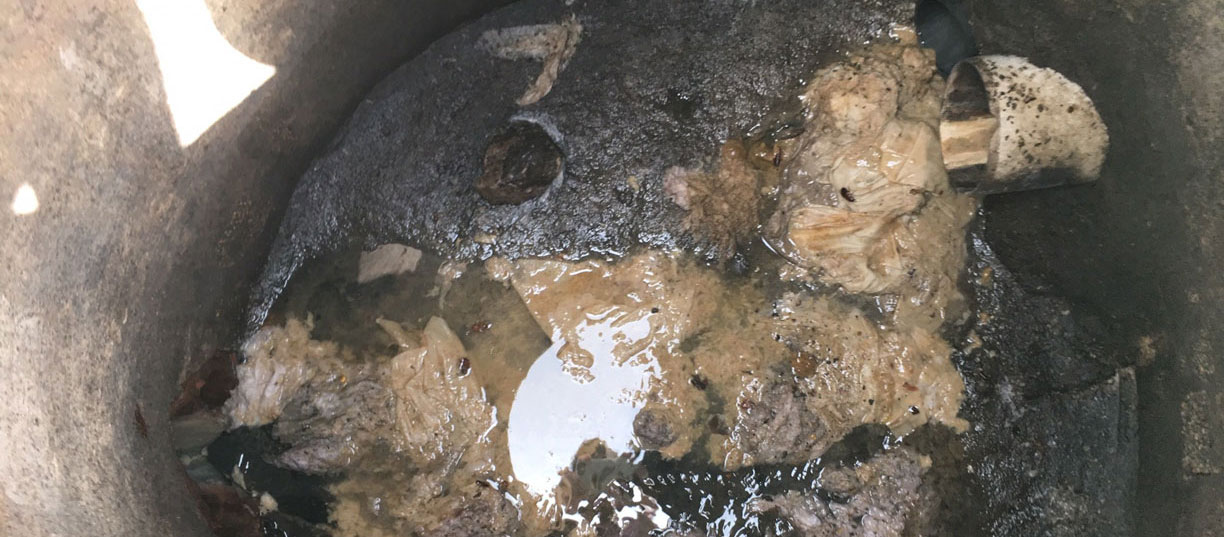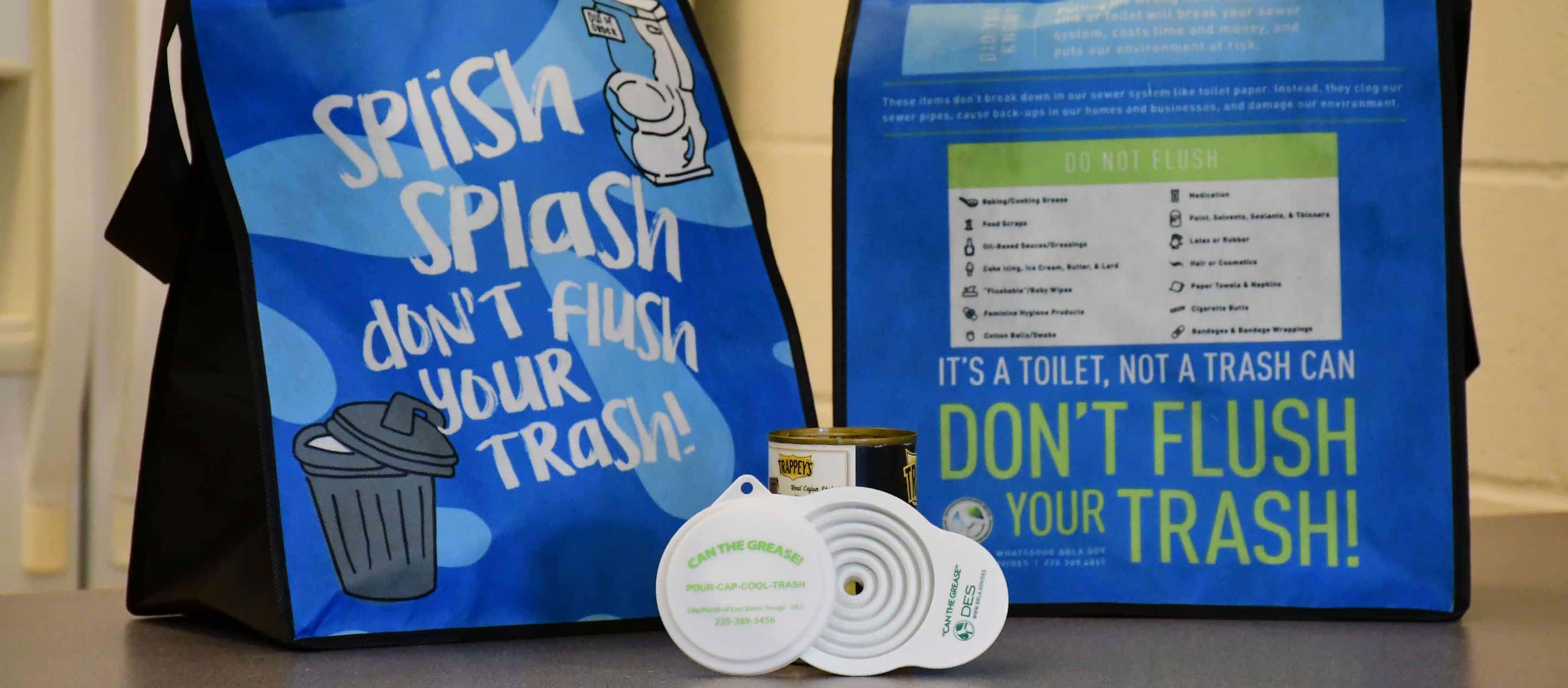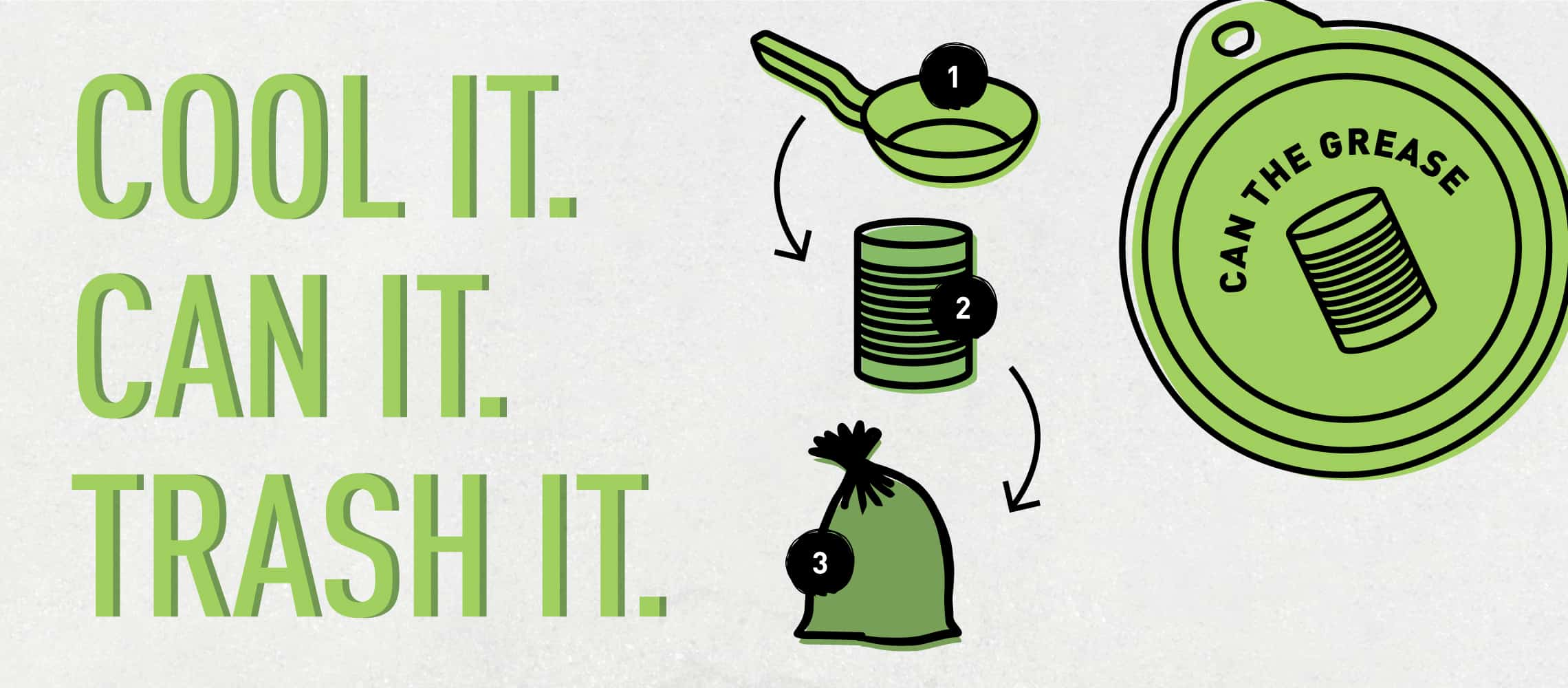Fats, oil and grease clog Baton Rouge’s sewer lines, causing sewer overflows and backups that are costly and impact your quality of life.
Communities face costly and inconvenient problems with sanitary sewer systems when FOG, personal wipes, dental floss, paper towels and other items, accumulate in pipes or in pumping stations. The most common way this occurs is by flushing these items down the toilet or by pouring them down the drain. Some of the most harmful materials like wipes may claim to be flushable, but they are not and cause significant damage to the sewer system.
30%
The percent of sewer overflows caused each year by clogged pipes
2500
The amount of City-Parish sewer backup calls in 2021
$1.6B
Amount taxpayers have spent on improvements to the Baton Rouge sewer system
For Your Sewer System
What's Good
Baton Rouge tax payers have spent nearly $1.6B over the last ten years on their sanitary sewer system to improve environmental and public health, and allow for continued economic growth in the Parish. A sanitary sewer system IS GOOD when it works for your home, your wallet, and the environment.
What's Bad
Upgrades to sanitary sewer capacity or rehabilitation of existing pipes cannot stop sanitary sewer overflows that are a result of user-generated blockages. Placing the wrong items down your sink or toilet will result in a sewer system that breaks, costing you time, money and puts our environment at risk. That’s BAD.
For Your Drain or Toilet
What's Good
Water
Pee
Poop
Toilet Paper
That's It!
What's Bad
Baking/Cooking Grease
Oil-Based Sauces/Dressings
Cake Icing, Ice Cream, Butter & Lard
"Flushable" / Baby Wipes
Cotton Balls/Swabs
Food scraps
Cigarette Butts
Paper Towels and Napkins
Bandages and Bandage Wrappings
Latex or Rubber
Hair or Cosmetics
Fog Myths
Myth
You can wash grease down with dish soap.
Fact
While dish soap appears to break up grease in our sinks, it has no effect on sewer pipes. It allows grease to solidify into a soap-like deposit that forms in your plumbing or sanitary sewer lines, resulting in clogged pipes and expensive repairs.
Myth
Running hot tap water will help grease float into sewer pipes.
Fact
Running hot water does NOT help grease float. The water temperature eventually cools and the grease becomes solid again, forming soap-like deposits in your sewer pipes.
Myth
Pouring cooking oil that is liquid at room temperature is ok.
Fact
Cooking oil, such as olive and canola oil, floats on the surface of the water and reacts with sewage to form soap-like deposits that adhere to sewer pipes. It is best to avoid pouring oil down the drain altogether.
Myth
"Flushable" wipes are made to flush so they must not clog pipes.
Fact
These wipes do not break down like toilet paper. Ultimately, they accumulate with other debris and FOG materials to clog pipes and can cause pump stations to shut down temporarily.
Myth
Paper towels break down like toilet paper.
Fact
Paper towels are designed to clean up spills which makes them thicker than toilet paper and unable to break down in water, causing clogs in pipes and expensive problems to fix.
Myth
Anything small enough to fit down the toilet is "flushable."
Fact
Not all items that fit down the toilet are designed to safely break down in sewer systems. These materials will combine with FOG and wipes to create "fatbergs" that cause significant damage to your pipes and sewer system.
Printable Resources
Help us Stop the Fog
Did you know that putting the wrong items down the sink or toilet will result in a sewer system that breaks, costs time and money, and puts our environment at risk?
The next time you’re cooking with grease, help us stop the FOG by requesting your FREE “can the grease” lid and we’ll send one your way. If you own a business in East Baton Rouge Parish and would like to show you support what’s good for our sewer system, request a FREE poster by clicking the link below.
Request a can the grease lid
